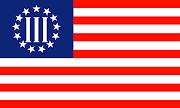by Brooke Levitske
Despite – or precisely because of – soaring tuition costs and record-high post-graduation debt levels, 2008 Presidential campaign rhetoric is rife with promises of more federal aid for college students. Expressing widespread liberal sentiment, Barack Obama's stance is that the government should "guarantee every American an affordable, world-class, life-long, top-notch education, from early childhood to high school – from college to on-the-job training." Obama has also floated the idea of giving all students who maintain a B average a guaranteed, taxpayer-funded college education.
But would a new injection of federal dollars inflame the problems that already exist in the world of higher education? Steadily increasing federal grants and loans to college students are one major cause of the exponential rise in tuition, student debt, and institutionalized dependency on government aid. Some schools are determined to avoid this trap. Hillsdale College, for example, recently announced its decision to protect its independence by refusing all federal and state money, choosing to rely entirely on privately-funded scholarships for its students.
America has a 60-plus year history of providing federal aid for higher education, beginning in a major way with the passage of the GI Bill of Rights near the close of WWII. Controversial in its day, the GI Bill transformed American campuses as millions of returning veterans enrolled in colleges and training schools. Without question, the state has an obvious interest in encouraging its citizens to pursue higher education – especially as the economy demands ever-broader global and technological competency. Founding Fathers like John Adams and George Washington saw great value in making laws and spending taxpayer money to edify the public mind. Both thought it impossible to preserve a free society without maintaining a generally "enlightened" populace.
But the first principle of analyzing an act of the government is not to ask, "Is it a good idea?" but rather, "Is it the government's place?" Interestingly, good ideas rarely require the government's help to succeed, and are often damaged by the attempt. Practically, federal funding causes the cost of tuition to go up – at a rate much faster than the rate of inflation – so it generates the exact opposite of its stated intent. (According to the American Institute for Economic Research, the average tuition increased by 150 percent between 1993 and 2003, making higher education second only to the tobacco industry in price increases.) Theoretically, federal funding of anything opens the door to greater federal control over that thing; so if education is the formation of minds and characters, increased federal aid opens the door to more governmental control over the minds and characters of those being educated.
Practically speaking, one effect of helping students pay for tuition is that the government creates a greater demand for space in colleges and universities. And when more people want a thing, the seller can raise its cost. As a Cato Institute study has pointed out, this is especially true when federal aid increases the demand for space but the amount of space available at a given school remains static. Because all institutions are managed differently, and experience varying levels of supply and demand, they will attract different types of students. This means that actual benefits are passed to some schools and students but not to others, even if all receive federal money. Also, colleges and universities often decrease their own financial aid to students in response to government aid, while keeping tuition the same (if not raising it). Nothing about federal grants or loans "levels the playing field" in any observable way.
The Revolutionary War-era slogan, "Take the king's coin, become the king's man" describes the theoretical danger of allowing the government to subsidize higher education, as Hillsdale recognizes. But if the government provides the money, the government can call the shots. J. Gresham Machen, Princeton theologian and founder of the Orthodox Presbyterian denomination, summed it up well in his 1933 address, "The Necessity of the Christian School":
Every lover of human freedom ought to oppose with all his might the giving of federal aid to the schools of this country; for federal aid in the long run inevitably means federal control, and federal control means control by a centralized and irresponsible bureaucracy, and control by such a bureaucracy means the death of everything that might make this country great.
Students, politicians, and universities need to have an honest discussion about where this cycle of superfluous taxation, excessive spending, and increased personal comfort with debt is taking us, morally as well as pragmatically. If tuition continues to increase at nearly twice the rate of inflation, students will feel even greater pressure to apply for government help – which will raise tuition again, placing them in graver financial vulnerability.
A college education is still a good investment on which the market offers significant returns. But if tuition reaches an artificially high level such that the market cannot guarantee financial stability for students in the wake of post-graduation debt, intellectual independence may not be the only problem students will face.














